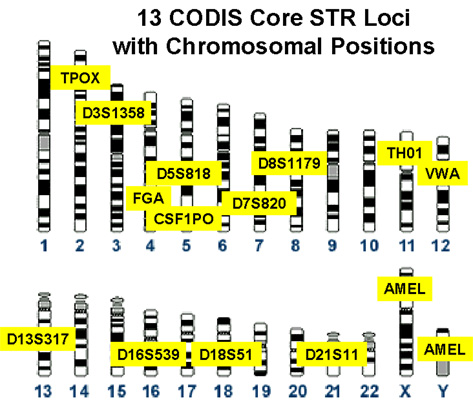I recently presented a paper on Forensic genomics: kin privacy, driftnets and other open questions (co-authored with Lucia Bianchi, Pietro Liò and Douwe Korff) at WPES 2008, the Workshop for Privacy in the Electronic Society of ACM CCS, the ACM Computer and Communication Security conference. Pietro and I also gave a related talk here at the Computer Laboratory in Cambridge.
While genetics is concerned with the observation of specific sections of DNA, genomics is about studying the entire genome of an organism, something that has only become practically possible in recent years. In forensic genetics, which is the technology behind the large national DNA databases being built in several countries including notably UK and USA (Wallace’s outstanding article lucidly exposes many significant issues), investigators compare scene-of-crime samples with database samples by checking if they match, but only on a very small number of specific locations in the genome (e.g. 13 locations according to the CODIS rules). In our paper we explore what might change when forensic analysis moves from genetics to genomics over the next few decades. This is a problem that can only be meaningfully approached from a multi-disciplinary viewpoint and indeed our combined backgrounds cover computer security, bioinformatics and law.

(Image from Wikimedia commons, in turn from NIST.)
Sequencing the first human genome (2003) cost 2.7 billion dollars and took 13 years. The US’s National Human Genome Research Institute has offered over 20 M$ worth of grants towards the goal of driving the cost of whole-genome sequencing down to a thousand dollars. This will enable personalized genomic medicine (e.g. predicting genetic risk of contracting specific diseases) but will also open up a number of ethical and privacy-related problems. Eugenetic abortions, genomic pre-screening as precondition for healthcare (or even just dating…), (mis)use of genomic data for purposes other than that for which it was collected and so forth. In various jurisdictions there exists legislation (such as the recent GINA in the US) that attempts to protect citizens from some of the possible abuses; but how strongly is it enforced? And is it enough? In the forensic context, is the DNA analysis procedure as infallible as we are led to believe? There are many subtleties associated with the interpretation of statistical results; when even professional statisticians disagree, how are the poor jurors expected to reach a fair verdict? Another subtle issue is kin privacy: if the scene-of-crime sample, compared with everyone in the database, partially matches Alice, this may be used as a hint to investigate all her relatives, who aren’t even in the database; indeed, some 1980s murders were recently solved in this way. “This raises compelling policy questions about the balance between collective security and individual privacy” [Bieber, Brenner, Lazer, 2006]. Should a democracy allow such a “driftnet” approach of suspecting and investigating all the innocents in order to catch the guilty?
This is a paper of questions rather than one of solutions. We believe an informed public debate is needed before the expected transition from genetics to genomics takes place. We want to stimulate discussion and therefore we invite you to read the paper, make up your mind and support what you believe are the right answers.